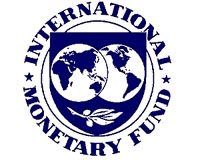 |
Tokyo (AFP) May 19, 2011 Japan's economy plunged back into recession in January-March, contracting sharply on the impact of the nation's biggest recorded earthquake, a tsunami and a nuclear crisis, data showed Thursday. Gross domestic product fell 0.9 percent in the first quarter compared with the previous three months, and marked the second consecutive quarter of contraction, which economists define as a technical recession. The drop was equivalent to a 3.7 percent fall on an annualised basis. In the aftermath of the disasters, industrial output saw its biggest ever fall and spending plunged as consumer and business confidence took a tumble. Many analysts see the downturn worsening in April-June, as nationwide supply chain problems in the wake of the quake continue to disrupt production and the threat of power supply disruption prevails. "The economy was weak before the Great East Japan Earthquake struck on 11th March and the full impact of that catastrophe has only just begun to be reflected in the GDP data," noted Capital Economics. The fall in annualised terms was nearly double the 2.0 percent drop forecast in a Dow Jones Newswires poll of analysts and was the first successive contraction since the global financial crisis. "The Japanese economy is expected to remain weak for the time-being," Economy Minister Kauro Yosano told reporters, adding that a third straight contraction in April-June was likely. However, he stressed Japan's plight was temporary given the difference between the impact of the earthquake and the financial crisis, which sapped overseas demand. Japan's economy contracted for four straight quarters during the downturn and remains mired in deflation as falling prices encourage consumers to hold off purchases. "The situation is totally different from the time in the wake of Lehman Brothers' collapse. The Japanese economy is seen to be strong enough to show resilience," he said, adding the decline "is not due to sluggish overseas demand." Yosano said he expected Japan to grow nearly 1.0 percent in the current fiscal year. The January-March contraction was the worst slippage since a record 18.3 percent tumble in January-March 2009. Private consumption, which accounts for nearly two-thirds of the economy, was down 0.6 percent. Japan adopted a mentality of self-restraint in the aftermath of the disasters, which is slowly easing. Data earlier this week showed consumer sentiment plunging by its steepest measure on record in April. The 9.0 magnitude earthquake and a devastating tsunami has left around 25,000 dead or missing, and with a subsequent emergency at the Fukushima Daiichi nuclear plant it plunged Japan into its worst post-war crisis. Many of Japan's biggest companies saw profits tumble in the quarter and have been unable to offer forecasts due to the scale of the disaster's impact on production and sales. The likes of Sony and Toyota were forced to halt production. Many component manufacturers are based in the worst-hit regions of Japan, their facilities damaged by the earthquake or inundated by the giant wave that followed. While fears of an electricity supply-demand imbalance going into the summer months have eased slightly, the situation remains volatile, analysts warn. Before the disasters, analysts had predicted that the nation's economy would return to growth in the first quarter on rising overseas demand. Having gone into recession, analysts say the economy should start to grow again in the third quarter as initial earthquake-related disruption is overcome and reconstruction spending starts to boost the official figures. "The point to watch in coming quarters is how well production can recover," said Daiju Aoki, economist at investment bank UBS. "It is unlikely that (the economy) will stay mired in recession." An early government estimate put the rebuild cost at 16-25 trillion yen ($195-$300 billion) over the next three fiscal years, not accounting for wider issues such as the unresolved crisis at the Fukushima Daiichi nuclear plant. Analysts say the rebuild cost will further pressure a public debt that at around 200 percent of GDP is the industrialised world's largest.
Share This Article With Planet Earth
Related Links The Economy
 Asia urges non-European for IMF top post
Asia urges non-European for IMF top postHong Kong (AFP) May 19, 2011 Asian nations on Thursday urged the International Monetary Fund to break with tradition and appoint a new leader from an emerging economy, following the resignation of its scandal-hit chief. China, South Korea and Thailand led calls for the IMF to replace Dominique Strauss-Kahn, who resigned after he was charged with sex offences in New York, with a candidate from an emerging economy to refl ... read more |
|
| The content herein, unless otherwise known to be public domain, are Copyright 1995-2010 - SpaceDaily. AFP and UPI Wire Stories are copyright Agence France-Presse and United Press International. ESA Portal Reports are copyright European Space Agency. All NASA sourced material is public domain. Additional copyrights may apply in whole or part to other bona fide parties. Advertising does not imply endorsement,agreement or approval of any opinions, statements or information provided by SpaceDaily on any Web page published or hosted by SpaceDaily. Privacy Statement |